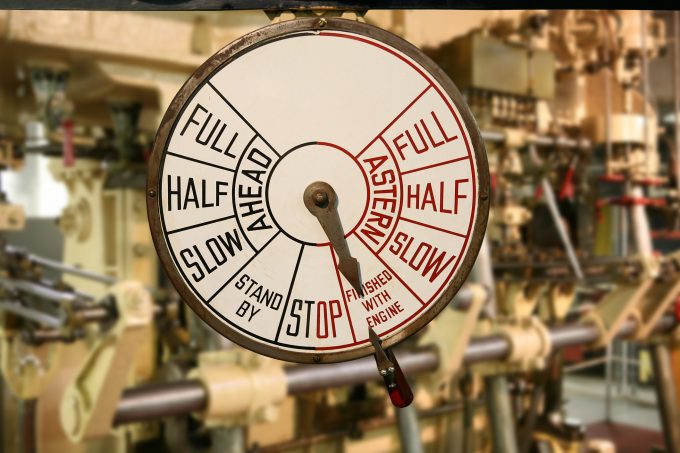Box ship diversions due to Red Sea crisis having dramatic impact on emissions
The Saudi Arabian hub port of Jeddah is reporting a two-thirds drop in calls from ...

Less than 18 months before the IMO’s 0.5% sulphur cap regulations come into force for merchant shipping, container lines are worried that the estimated $50bn extra cost of the greener fuel could tip them into bankruptcy.
“We’re all going to go bust,” MOL’s president and chief executive Junichiro Ikeda told the Financial Times.
He expressed his concern that ocean carriers would be unable to recover sufficient amounts from shippers to mitigate the impact of the $300 a tonne extra cost of low-sulphur fuel oil (LSFO).
Mr Ikeda may have good reasons to be worried: carriers have generally not been very successful in their attempts to pass on extra fuel costs to shippers, illustrated by a cumulative net loss of over $1bn in the first quarter for the industry this year, attributed to a spike in oil prices.
In the previous decade, the establishment of SECA (Sulphur Emission Control Areas) in the North and Baltic Seas and North American and Canadian coastlines, which required switching tanks to LSFO when entering, was also not compensated.
Ocean carriers initially announced surcharges to cover the cost of more expensive fuel consumed on some tradelanes, but these were ultimately absorbed into their freight rates.
Carriers can avoid the need to burn LSFO by the installation of exhaust gas cleaning systems, known as scrubbers, which are, effectively, onboard treatment plants to remove harmful sulphur oxides from ship’s engines and boiler exhaust gases for later disposal ashore.
These can cost up to $10m to retrofit to a large containership, but on newbuilds the extra cost would be comparatively small in the context of the total price.
But even with the capex requirement for existing ships, it has been calculated that a container shipping line would see the cost repaid after about nine months, if the ship continued to burn the cheaper high sulphur heavy fuel oil (HFO).
Until recently most of the major carriers had spoken against the use of scrubber systems, saying they did not represent a “long-term solution”. And they have also suggested there could be issues with the availability of HFO post-2020, along with the prospect of tougher IMO regulations restricting its carriage by barge.
However, last week MSC broke ranks by announcing that, not only would it specify scrubbers for its newbuild orders of 23,000 teu ULCVs, but it was also in the process of retro-fitting scrubbers on a “significant number” of ships in its existing fleet.
In contrast, MSC has warned of the risk of lack of availability of LSFO, given that refineries have been slow to invest in new facilities with the capacity to produce sufficient quantities of distillates.
It will be interesting to see whether the Geneva-headquartered carrier’s decision to install scrubbers will sway the view of its 2M partner, Maersk Line, given that it will face the prospect of higher unit costs than MSC from January 2020.
Comment on this article
Gary Ferrulli
June 11, 2018 at 3:00 pmThat’s an odd statement by one of the people who can make sure it doesn’t happen,
or does. The issue of rising fuel costs isn’t anything new to the industry, or any transport providers. When it occurs, the industry generally takes action to recover the increase costs from the customers. Decades ago the ocean carrier industry established fuel surcharge mechanisms that essentially worked to recover extraordinary fuel price increases. The surcharge fluctuated dependent on the price of fuel – simple and straight forward. But as carriers had the option of what to charge on anything through Service Contracts, they used a fuel surcharge exemption to try and capture market share, the all-in rates. So if the industry goes bust because of a fuel increase, it will be their own doing, their own decision making. The regulations are what they are, they comply and get a significant increase in cost. They can recover it through the surcharge, which has to be understood by any shipper; or they continue to chase market share by exempting large segments of the market from the surcharge and go bust. Their choice.
Erik N
June 13, 2018 at 5:06 amScrubbers are not the answer. They decrease fuel efficiency (thus increase costs and GHG emissions) and they are maintenance intensive (more cost), especially as they age. Worst of all, open-loop systems simply capture air pollution and transfer it to the sea. That’s not a solution; that’s simply moving the pollution from the air to water. It’s absolutely amazing that there’s not a larger outcry about this.
Harry Perry
June 17, 2018 at 4:14 pmScrubbers are a great solution. The problem is that the owner’s with a large fleet can expect an exorbitant retrofit bill to implement the solution. For most newbuilds, it makes sense. The IMO regulations for GHG emissions will not take effect till 2050. This is beyond the life of most existing ships. If you use LSFO, the distillates, ask your charterer for fuel purchase assistance. Some charterers already practice this.